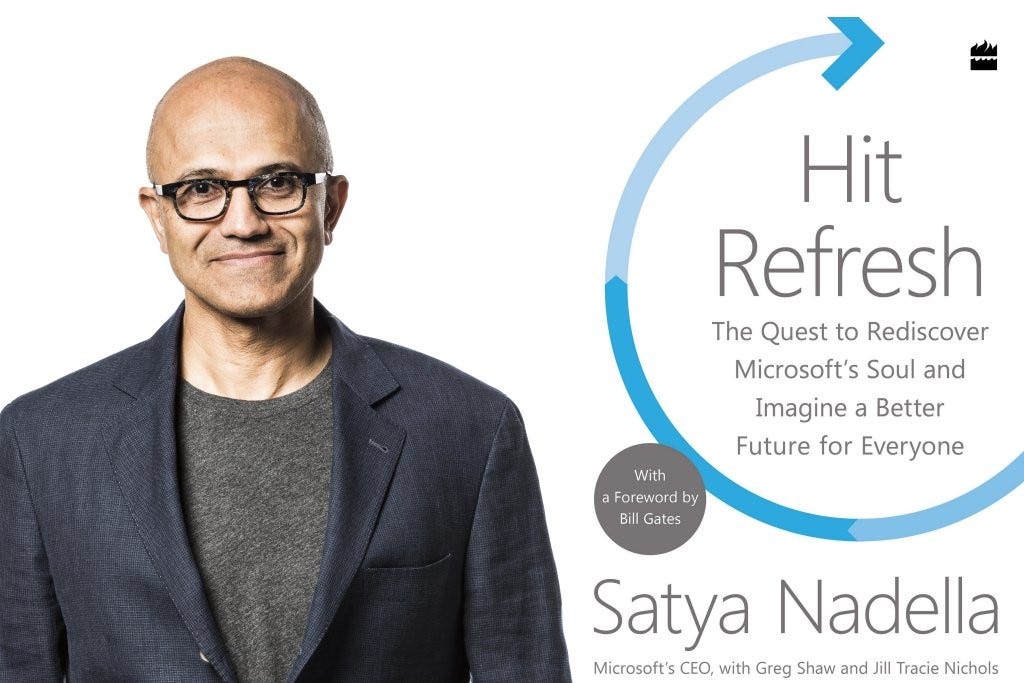The 5 Principles of a manager’s job
What are the key skills and behaviours to become a respected and beloved manager? After more than 30 years on the software industry from employee to C-level manager, this is my take on it.

Today I’m not gonna talk about food, gastronomy, cooking or anything like that. I want to talk about management styles and leadership. I know, it’s kind of an eclectic substack mixing so different topics but this is why it is called “divagatio” after all, isn’t it?
I spent more than 30 years on the software industry. I started on it at a very young age and never left it. Software have some kind of magic that inspires me. Whatever you imagine, it can be done… or almost. You can create new industries, new meanings, make people more productive or allow them to have more free time while achieving more. I’m passionate about it.
During my career I have been a software engineering employee, from junior to senior, then founder and CEO of some companies, and later VP of a huge corporation. Along this path I had to tackle with some management incidents and situations that made me think about what I expect, every time, from a manager working with me. After thinking on the core principles and values of management that I want by my side -hint: what I would like from a boss-, I ended up with list of 5 key points of what should be a manager code of conduct, as per my understanding. It resulted to be exactly what I wanted from my managers in previous jobs, when I wasn’t the CEO. What made me feel better as a professional? What kind of environment and management style get the most out of me? That’s exactly what I think managers should be and how they must behave.
I’m not telling this is an absolute truth, or that I’m better or worse than other managers. It’s just my ideal, and it’s what I try to keep in mind on each action and decision… although this is not always possible. Sometimes you are not doing things the best you can, sometimes a different style is needed to provoke a change.
We can summarize these five principles in a single sentence:
Your main duty as a manager is to be a servant of your team.
1. Gentleness: Handle problems as smoothly and low-profile as possible.
Adding noise in the middle of a crisis can only drive to a deeper, wider and longer crisis. Noise will only undermine confidence across the company, and promote a culture of complaining more than solving challenges. I’m not saying to hide problems, in any way. Transparency is fundamental to building trust, but don’t charge other’s back with part of the problems on your table. Explain it, take responsibility of it, and explain how you solved and what is needed from everyone involved to avoid it happening again.
2. Trust: Encourage and promote trust across your team.
You are in the middle of a crisis. Things are not working as it should, stress and anxiety is skyrocketing, and the problems are accumulating. What can you do? Blame others, finger-point to the ones who failed or made a mistake, find the guilty and, if there’s no guilty, find a scapegoat to cover your own mistakes and shortcomings. Because you have shortcomings. I have shortcomings; and I fail, just like you. And usually, a real crisis is not because of a single failure neither because of a single person. So, what can you do? Blaming won’t help. It will just promote distrust across peers. It will make the situation worse and, from a practical point of view, will make everyone waste time checking details to defense from accusations, rather than investing the time in solving the problem and getting out of the crisis as soon as possible. Assertive communication and empathy are the answer.
If you want to promote trust and collaboration, empathy is more powerful than raw power. Satya Nadella put a lot of emphasize on using empathy as a driving force for change, growth and collaboration, in his book “Hit Refresh”. He explains how he realized about the importance of empathy, and how he is using it to transform Microsoft and make the change that was required to compete in the new era of cloud computing, IoT and AI.
On the other hand, using raw power and projecting anger, will reduce your power, undermine trust and collaboration, undermine motivation and, eventually, will make crisis worse and, over time, destroy you as a manager and ruin your project.
3. Guided delegation: Make it easier for others to do their jobs, without sacrificing passion for quality.
So, under a crisis situation, what you need to do is to Observe (gather all the information, from the different point of views and actors implied), Orient (think where you are and why you are there), Decide (get to conclusions and create a plan, but only after you observed and oriented), and Act. That’s what is known as OODA loop, created by USAF Colonel and military strategist John Boyd. It favours agility over raw power. Under a situation of crisis, assertive communication, information gathering, situational awareness, analysis and action, is the way to go. Keep calm and OODA.
In normal situations, when you are not under a crisis, managers should learn to delegate. You delegate the execution, but responsibility is shared, not fully delegated. As a manager you still have to ensure that the task is clear (communication on goal, purpose and expectations), control quality, and help and guide if needed. Obviously, there must be an equilibrium; at some point, guiding shouldn’t be necessary, because the ultimate goal of delegation and guiding is to have professionals that are autonomous and that can make other peers autonomous, too. After all, a mistake may be the responsibility of the one who executed the task, but a repeated mistake or problem is the responsibility of the manager and no-one else.
4. Sense of Purpose: Communicate in a positive way, promoting trust, confidence and illusion.
Without the whole picture, without having all the information, message will not be trustworthy; without a positive way of communication, you will deliver anger and conflict, not the message. Focus on the solution, show the light at the end of the tunnel, discuss with your team how to solve the challenge, how to find the light, not about the darkness. The challenge to solve plus the light at the end of the tunnel, together with someone leading the way, is a project that can foster illusion and drive motivation, increasing chances of success and team performance. Darkness, blaming and complaining is just the opposite.
Calm, illusion, sense of purpose, trust, and empathy, are key elements to drive intrinsic motivation --Daniel H. Pink explains so well in his book "DRiVE" what motivates us. A must read book for every team manager.
But your message must be true and the solution achievable, not just trying to fool others into something. That’s why is so important to have all the pieces of information before getting to conclusions and crafting a plan. Without the whole picture, without having all the information, the plan you craft and the message to communicate it will probably be not trustworthy; without a positive way of communication, you will deliver anger, conflict and fear, and nobody will care about the message you want to deliver.
5. Lead by example.
Whenever you take an action involving other people -so, almost always-, think “is the way I’m managing it the way I would like to be managed?”. In case of doubt, probably you can do it better.
Strive for excellence in your actions, but remember that excellence is not perfections, and that done is better than perfect. Balancing quality and speed is an art.
And lead by example caring for your team, being empathic, helping always you can.
If you think carefully about these principles, you will notice that there are 2 overarching skills that are the key to success: humbleness and communication. And yes, humbleness is a skill, too, in a certain way; it can be practiced, it can be demonstrated (remember: lead by example), it can be taught. Humbleness is fundamental to earn respect and therefore auctoritas (more on that below); communication is key to create a narrative, a reason to be, a sense of purpose, to align all the actors of the company to row in the same direction, to share knowledge and learn together. It is, to create a sense of belonging.
Of course, it does not mean that hierarchy does not exist. Hierarchies exists, and hierarchies define where you are in the food chain at any given moment. However, managing by power is much less powerful than managing by authority, and it has a hard limit: your formal power quota is limited, and you spend it as you use it. It’s short-term-lived.
On the other hand, the more you use the authority, the more it grows. Authority (the moral authority) is given to you by your environment, not only by the team you manage; it is given to you by your team, your peers, your managers, and all the stakeholders you deal with every day, and by those that are affected by your actions and decisions. Authority is built from reputation and prestige. Reputation is an invisible magic shield that allows you to fail. By failing, you learn, by learning you improve, by improving you get better, and being better provides you an increased share of authority and reputation… so you can fail and learn again while still growing your share of authority.
So, next time you are going to handle a difficult situation, remember these principles and think about that: how can I better serve my team?
The quality of a manager is measured in difficult times.



